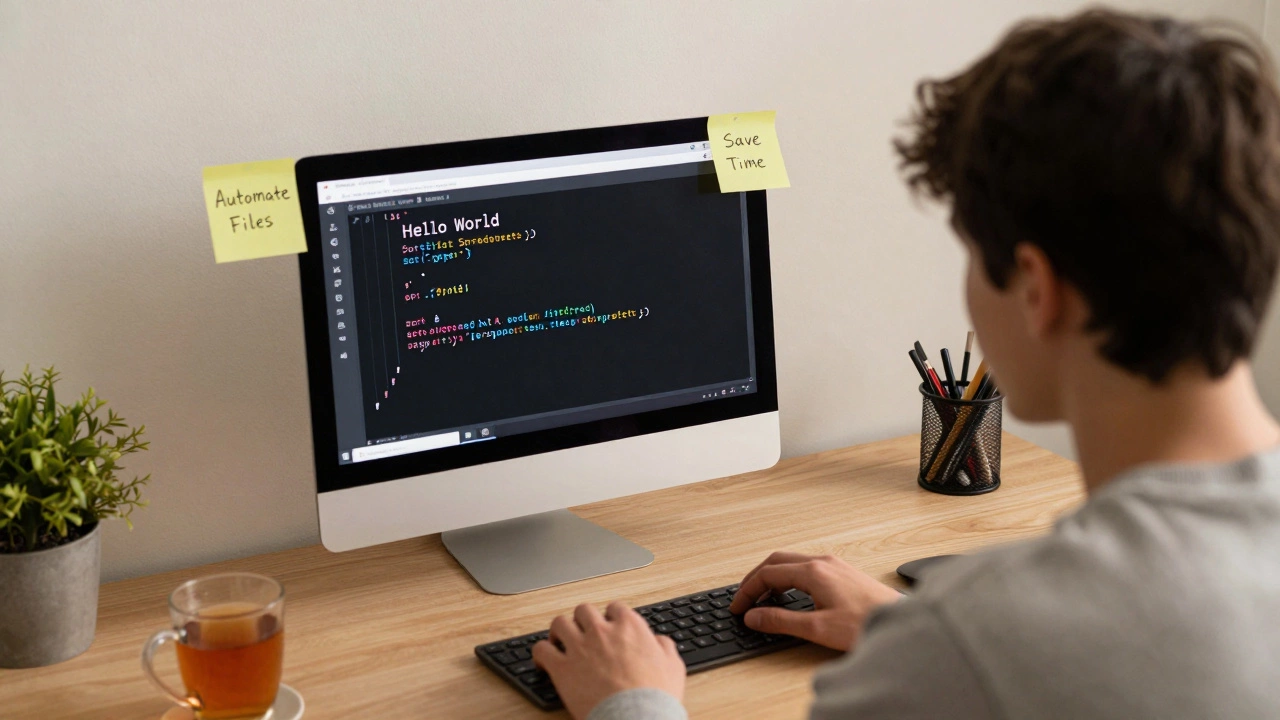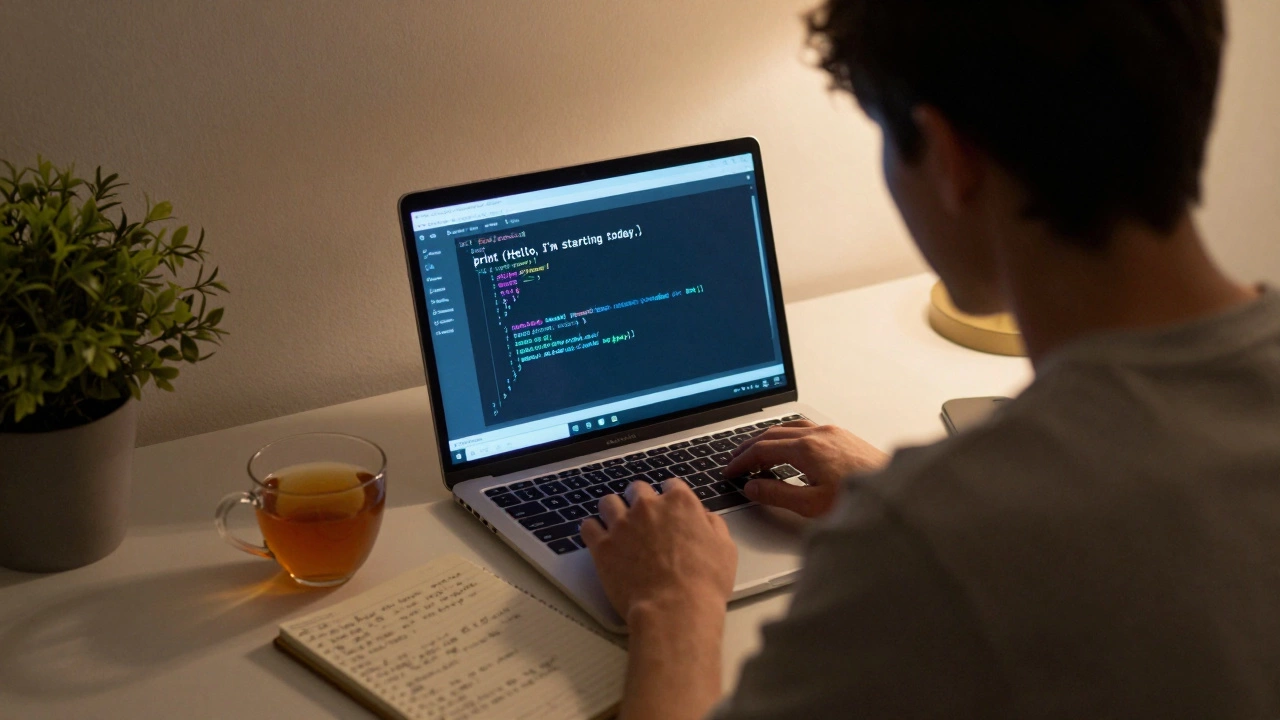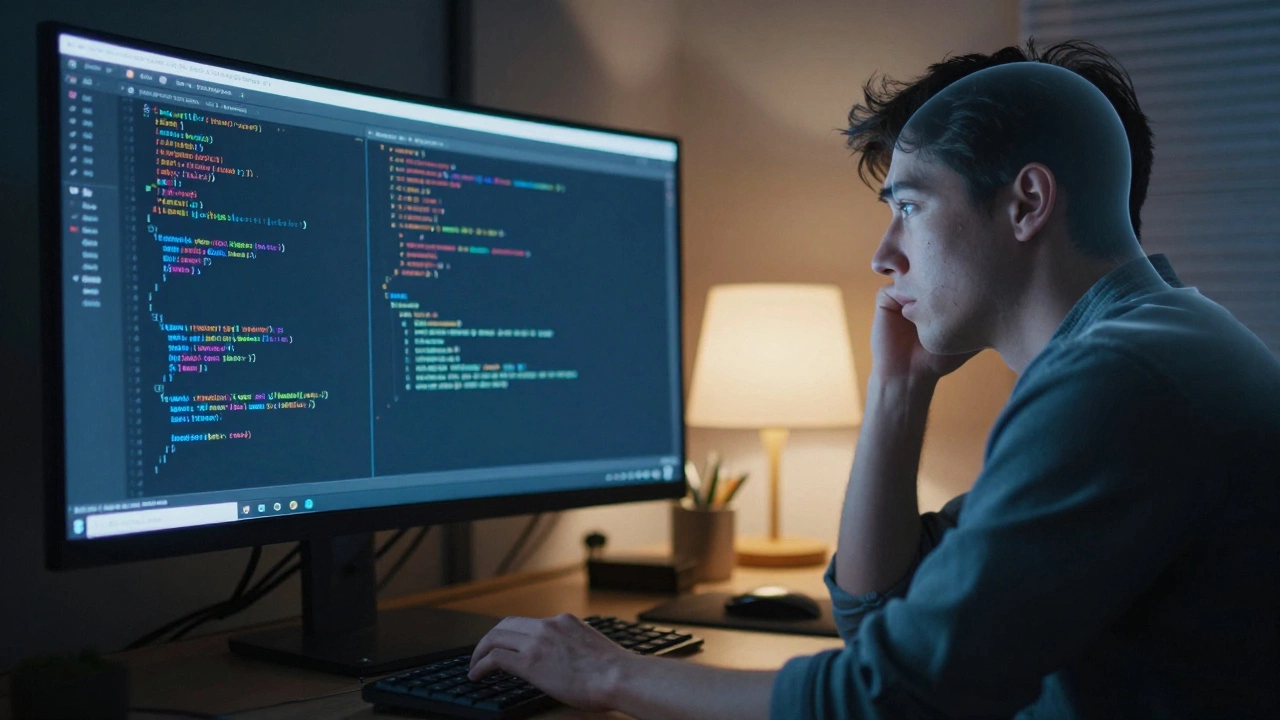Coding Classes: How to Choose the Right One for You
Thinking about learning to code but not sure where to start? You’re not alone. Hundreds of options crowd the market, from free YouTube tutorials to pricey bootcamps. The trick is to match a class to your goals, time, and budget. Below you’ll find a quick roadmap that cuts through the noise and helps you pick a class that actually works for you.
Key Factors to Look At
Age and experience. Kids need playful, visual tools like Scratch or Code.org, while adults often prefer a structured language such as Python or JavaScript. Some platforms blend both, but make sure the curriculum matches the learner’s level.
Learning format. Do you like watching video lessons, reading text, or solving hands‑on projects? Online platforms give you flexibility; in‑person workshops provide real‑time feedback. Hybrid models let you watch videos at home and attend a weekly meet‑up.
Curriculum depth. A good class starts with basics – variables, loops, and conditionals – then moves to building real projects. Look for courses that end with a portfolio piece, like a simple website or a game, because that’s what future employers will see.
Instructor support. A forum, live chat, or weekly office hours can make a huge difference when you hit a roadblock. Check reviews for how quickly mentors respond and how detailed the feedback is.
Cost vs. value. Free courses are great for a taste, but many charge when they add certification, mentor help, or career services. Calculate the total spend and compare it to what you’ll get – a certificate, job‑ready skills, or a community.
Best Places to Start Learning
Online platforms. Websites like Codecademy, freeCodeCamp, and Udemy offer self‑paced lessons. They’re ideal if you can dedicate an hour a day and like learning at your own speed.
Bootcamps. Programs such as Le Wagon, General Assembly, or local coding schools provide intensive, short‑term training. Expect full‑time commitment and higher fees, but they often include job placement help.
School and college electives. Many Indian schools now run after‑school coding clubs, and universities offer beginner courses for non‑CS majors. These classes blend coding with a traditional classroom vibe.
Kids‑focused clubs. Look for community centers, libraries, or private studios that run weekly coding clubs for ages 7‑14. They use games and LEGO‑style robots to keep kids engaged.
Now that you know where to look, here’s a quick action plan:
- Write down what you want to achieve – a career switch, a hobby project, or a skill for school.
- Pick three classes that match your goal and budget.
- Take any free trial or intro lesson they offer. Pay attention to how the material is explained and how quickly you’re helped when you ask a question.
- Read recent student reviews for real‑world feedback on job outcomes or project quality.
- Enroll in the one that feels easiest to start and most likely to keep you motivated.
Remember, the best coding class is the one you actually finish. Consistency beats perfection, so choose a schedule you can stick to and treat each lesson like a short workout for your brain. Before long you’ll see code turning into something useful – a simple app, a website, or even a game you built yourself.
Ready to take the first step? Grab a notebook, pick a class from the list above, and start coding today. The only thing standing between you and your first program is the decision to begin.
How to Start Coding for Beginners: A Simple Step-by-Step Guide
Learn how to start coding as a beginner with simple steps, free tools, and real projects. No experience needed-just curiosity and consistency.
read moreWhich coding language should I learn first? A practical guide for beginners
Choosing your first coding language doesn't have to be overwhelming. Learn why Python and JavaScript are the top choices for beginners, what to build with each, and how to avoid common mistakes that stop people before they even begin.
read moreIs coding difficult for beginners? What to expect when starting out
Is coding difficult for beginners? It’s not about talent-it’s about consistency. Learn what to expect, common mistakes to avoid, and how to start coding with zero experience.
read moreWhat Is the Golden Rule of Coding? The One Principle Every Programmer Must Follow
The golden rule of coding is simple: write code that other humans can read. It’s not about clever tricks or short lines - it’s about clarity, consistency, and respect for everyone who’ll work with your code later.
read moreWhat Is the Hardest Thing About Coding?
The hardest part of coding isn't learning syntax-it's learning how to think like a machine, debug relentlessly, and keep going when things break. This is what separates beginners from those who actually ship software.
read moreCan I Learn Coding for Free? Here’s Exactly How to Get Started in 2025
Yes, you can learn coding for free with high-quality resources like freeCodeCamp, Google's Python Course, and CS50. No degree or money needed-just consistency and projects. Here's how to start in 2025.
read moreCan I Learn to Code Without Strong Math Skills?
Yes, you can learn coding without strong math skills. Discover beginner‑friendly languages, learning paths, and tips to succeed.
read more5 Common Types of Codes Explained: Programming, Security & More
Skip the tech-speak. Here’s the real scoop on the 5 main types of codes, from computer programming to the secret stuff spies love. Examples and fun facts inside.
read moreProgramming vs Coding: Real Differences Explained for Beginners
Discover the real differences between programming and coding. Understand their roles, skills required, and how they fit into tech careers. Learn which is right for you.
read moreWhy Coders Get Paid So Much: Skills, Demand, and Market Realities in 2025
Explore why coders get paid high salaries. Learn about the demand for coders, key facts, and how skills and tech market realities affect coder pay.
read moreIs 1 Hour a Day Enough to Learn Coding?
Wondering if an hour a day is enough to learn coding? This article digs into real results, what you can actually achieve, and how to make that hour count. We'll look at common hurdles, mistakes to avoid, and practical tips. Whether you've got a packed schedule or just want to maximize your efforts, you'll find straight answers here. Get ready for a sharp look at coding progress, the reality of time investment, and how to learn smarter.
read moreWhich Code to Learn First? A Clear Guide to Starting Your Coding Journey
Not sure which programming language to learn first? This article breaks down the real-world uses of popular coding languages, matches them to everyday goals, and helps you sidestep common beginner mistakes. You'll get straight-up advice—no jargon—on picking your first language, whether you're curious about web apps, gaming, or even just automating boring stuff. Find out what actually matters when choosing where to start, and see what works best for different learning styles. This guide will save you time, effort, and a few headaches on your way to learning your first programming language.
read more










